PUBLIC LECTURER: FORMER SECRETARY OF THE INTERIOR BRUCE BABBITT

Bruce Babbitt served as Secretary of the Interior from 1993 to 2001, as Governor of Arizona from 1978 to 1987 and as Attorney General of Arizona from 1975 to 1978.
As Governor Babbitt brought environmental and resource management to the forefront in Arizona. He personally negotiated and steered to passage the Arizona Groundwater Management Act of 1980, which remains the most comprehensive water regulatory system in the nation. He was also responsible for creation of the Arizona Department of Water Resources and the Arizona Department of Environmental Quality and a major expansion of the state park system.
Appointed Secretary of the Interior by President Clinton in 1993, Babbitt served for eight years, during which he led in the creation of the forest plan in the Pacific Northwest, restoration of the Florida Everglades, passage of the California Desert Protection Act, and legislation for the National Wildlife Refuge system. As a certified fire fighter, Babbitt brought his front line experience to creating a new federal wild land fire policy that emphasizes the role of fire in maintenance and restoration of natural ecosystems. He pioneered the use of habitat conservation plans under the Endangered Species Act and worked with President Clinton to create twenty two new national monuments, including the Grand Staircase Escalante National Monument in Utah.
SPEAKERS
Diane Agnew
 Diane Agnew is the Environmental Manager for the Albuquerque Bernalillo County Water Utility Authority (Water Authority) in Albuquerque, New Mexico. At the Water Authority, Ms. Agnew supports the implementation and tracking of the Water Authority’s 100-year water management strategy, Water 2120, including the identification of future sources. She is on a team that completed a study of aquifer storage and recovery suitability in the Water Authority service area. That team is now using the results of that study for the selection, design, and permitting of a new ASR project for the Water Authority. In addition to Ms. Agnew’s work on ASR projects in the Water Authority, she is the lead for source water protection planning and protection measures for the Water Authority, working with her team to coordinate with the City of Albuquerque, Bernalillo County, and other agencies for advocate for timely and rapid response to contamination of source waters, public outreach and education, and identification of actions the Water Authority can undertake to protect its drinking water sources.
Diane Agnew is the Environmental Manager for the Albuquerque Bernalillo County Water Utility Authority (Water Authority) in Albuquerque, New Mexico. At the Water Authority, Ms. Agnew supports the implementation and tracking of the Water Authority’s 100-year water management strategy, Water 2120, including the identification of future sources. She is on a team that completed a study of aquifer storage and recovery suitability in the Water Authority service area. That team is now using the results of that study for the selection, design, and permitting of a new ASR project for the Water Authority. In addition to Ms. Agnew’s work on ASR projects in the Water Authority, she is the lead for source water protection planning and protection measures for the Water Authority, working with her team to coordinate with the City of Albuquerque, Bernalillo County, and other agencies for advocate for timely and rapid response to contamination of source waters, public outreach and education, and identification of actions the Water Authority can undertake to protect its drinking water sources.
Ms. Agnew’s earned degrees include a B.S. in Geology and M.S. in Hydrology, both from the New Mexico Institute of Mining and Technology. In the course of her career, she has worked in environmental consulting where she was responsible for the design and application of fate and transport modeling of vadose zone and groundwater systems. She has also worked as project manager for the remediation of soil and groundwater contamination at federal facilities, military munitions investigations and cleanup, and due diligence studies. Ms. Agnew worked as a hydrologist for the New Mexico Environment Department where she was the technical lead on complex sites such as the Gold King Mine spill and the Kirtland Air Force Base jet fuel leak. She has over 15 years of experience in water and environmental matters and has worked on sites throughout the southwest.
William Blomquist
 William Blomquist is Professor of Political Science and Adjunct Professor of Public and Environmental Affairs at Indiana University Purdue University Indianapolis (IUPUI). His research interests concern governmental organization and public policy, with a specialization in the field of water institutions and water management. He is also an Affiliated Faculty member of the Ostrom Workshop in Political Theory and Policy Analysis, a member of the editorial board of Policy Studies Journal, and a member of the board of directors of the White River Alliance. Blomquist received his bachelor’s degree in economics, master’s degree in political science, and graduate certificate in public administration from Ohio University, and his Ph.D. in political science from Indiana University.
William Blomquist is Professor of Political Science and Adjunct Professor of Public and Environmental Affairs at Indiana University Purdue University Indianapolis (IUPUI). His research interests concern governmental organization and public policy, with a specialization in the field of water institutions and water management. He is also an Affiliated Faculty member of the Ostrom Workshop in Political Theory and Policy Analysis, a member of the editorial board of Policy Studies Journal, and a member of the board of directors of the White River Alliance. Blomquist received his bachelor’s degree in economics, master’s degree in political science, and graduate certificate in public administration from Ohio University, and his Ph.D. in political science from Indiana University.
Tom Buschatzke
 Tom Buschatzke was appointed Director of the Arizona Department of Water Resources in January 2015. Prior to this appointment, he served as the Assistant Director of the Department’s Water Planning Division, overseeing the Colorado River Management, Active Management Areas, Planning and Data Management, Assured and Adequate Water Supply and Recharge Permitting, and Statewide Planning programs and Tribal Liaison. In that role he was responsible for multiple planning and policy, regulatory and permitting programs for the management of the state’s water supplies.
Tom Buschatzke was appointed Director of the Arizona Department of Water Resources in January 2015. Prior to this appointment, he served as the Assistant Director of the Department’s Water Planning Division, overseeing the Colorado River Management, Active Management Areas, Planning and Data Management, Assured and Adequate Water Supply and Recharge Permitting, and Statewide Planning programs and Tribal Liaison. In that role he was responsible for multiple planning and policy, regulatory and permitting programs for the management of the state’s water supplies.
Mr. Buschatzke serves as Arizona’s principal negotiator on matters relating to the Colorado River, is the Chairman of the Arizona Water Banking Authority and Co-Chair of the Drought Inter-Agency Coordinating Council and represents the State in Indian water right negotiations. Currently, Mr. Buschatzke chairs the Governor Ducey’s Water Augmentation Council which is tasked with investigating long-term water augmentation strategies and other opportunities to secure water supplies for Arizona’s future.
Mr. Buschatzke possesses over thirty-six years of experience in water management and has been a member of several statewide long-term water planning initiatives including serving as Co-Chair of the Statewide Water Resources Development Commission, the Governor’s Blue Ribbon Panel on Water Sustainability where he served as Co-Chair of the Regulatory and Permitting Group and was an active participant in the Statewide Water Advisory Group and Governor’s Drought Task Force.
During his twenty-four-year tenure with the City of Phoenix, he served as the Water Resources Management Advisor and was responsible for policy development for management of the City’s water resources and worked with directly with the City’s executive staff, the City Manager, the Mayor, and with members of the City Council on a variety of water issues.
Mr. Buschatzke’s career in Arizona water resources began with a 1982 Arizona Department of Water Resources internship in the Phoenix Active Management Area and he ultimately became a Program Manager in the Adjudications Division. He holds a Bachelor of Science in Geology from the State University of New York at Cortland.
Don Cameron
Don owns Prado Farms located in Fresno County. He is a graduate of Fresno State University and holds a degree in biology.
Cynthia Campbell
 Cynthia Campbell is the Water Resource Management Advisor for the City of Phoenix, Arizona. She is responsible for policy development and management of the City’s water resource portfolio. Ms. Campbell also serves as the City’s representative with the Salt River Project, the Central Arizona Project and the Arizona Department of Water Resources (ADWR). She represented Phoenix on the Drought Contingency Plan Steering Committee, the Arizona Water Bank Recovery Planning Advisory Group, the Salt-Verde Alliance and the Northern Arizona Forest Fund.
Cynthia Campbell is the Water Resource Management Advisor for the City of Phoenix, Arizona. She is responsible for policy development and management of the City’s water resource portfolio. Ms. Campbell also serves as the City’s representative with the Salt River Project, the Central Arizona Project and the Arizona Department of Water Resources (ADWR). She represented Phoenix on the Drought Contingency Plan Steering Committee, the Arizona Water Bank Recovery Planning Advisory Group, the Salt-Verde Alliance and the Northern Arizona Forest Fund.
Previously, Cynthia served Phoenix as an Assistant City Attorney, representing the City’s interests in water matters, including adjudication of the City’s water rights claims. Prior to her tenure with Phoenix, Cynthia served the State of Arizona as Water Quality Compliance Manager at the Arizona Department of Environmental Quality. She also represented the State as an Assistant Attorney General in the Environmental Enforcement Section. She has over two decades of experience in water resource and environmental matters and has practiced law in both Arizona and Illinois.
Cynthia is a graduate of Northwestern University School of Law and has a Bachelor’s Degree in Political Science from the University of Illinois at Champaign-Urbana.
Tom Cech
 Tom Cech was born and raised on a farm near Clarkson, Nebraska, graduated from Kearney State College with a Bachelor of Science Degree in Math Education, and later received a Masters Degree in Community and Regional Planning from the University of Nebraska – Lincoln. He was Executive Director of the Central Colorado Water Conservancy District in Greeley, taught water undergraduate and graduate level water resources courses at the University of Northern Colorado and Colorado State University, and is now the Co-Director of the One World One Water (OWOW) Center at Metropolitan State University of Denver.
Tom Cech was born and raised on a farm near Clarkson, Nebraska, graduated from Kearney State College with a Bachelor of Science Degree in Math Education, and later received a Masters Degree in Community and Regional Planning from the University of Nebraska – Lincoln. He was Executive Director of the Central Colorado Water Conservancy District in Greeley, taught water undergraduate and graduate level water resources courses at the University of Northern Colorado and Colorado State University, and is now the Co-Director of the One World One Water (OWOW) Center at Metropolitan State University of Denver.
Tom wrote “Principles of Water Resources: History, Development, Management and Policy,” published by John Wiley & Sons – currently in its 4th edition and translated into Portuguese. Tom also recently published “Introduction to Water Resources and Environmental Issues,” (co-author Dr. Karrie Pennington) with Cambridge University Press and translated into Arabic, and “Colorado Water Law for Non-Lawyers,” (co-author P. Andrew Jones) with the University Press of Colorado. He has also completed histories of the Colorado Water Conservation Board and the Colorado State Engineer’s Office with Bill McDonald and Dick Stenzel, respectively.
Andrew Fisher
 Andrew Fisher is a Professor of Earth and Planetary Sciences at UCSC, where he is also affiliated with departments of Environmental Studies, Microbiology and Environmental Toxicology, and Ocean Sciences. He is the UCSC Director for UC Water, co-PI for the Center for Dark Energy Biosphere Investigations, and founder of The Recharge Initiative (www.rechargeinitiative.org), a focused effort to protect, enhance, and improve the availability and reliability of groundwater resources. Fisher teaches classes in geology, hydrology, groundwater, and groundwater modeling, and conducts research on: surface water – groundwater interactions, managed recharge, geothermics, marine hydrothermal circulation, coupled flows (fluid-heat-solutes), water quality, and development of new hydrologic tools and techniques. He has served on numerous technical advisory committees for agencies, municipalities, and NGOs. Fisher earned a B.S. in Geology from Stanford University, and a Ph.D. in Marine Geology and Geophysics from the University of Miami. He is Fellow of the American Geophysical Union and the Geological Society of America, recipient of the O. E. Meinzer Award in Hydrogeology from the Geological Society of America, and has received two Excellence in Teaching Awards from UC Santa Cruz.
Andrew Fisher is a Professor of Earth and Planetary Sciences at UCSC, where he is also affiliated with departments of Environmental Studies, Microbiology and Environmental Toxicology, and Ocean Sciences. He is the UCSC Director for UC Water, co-PI for the Center for Dark Energy Biosphere Investigations, and founder of The Recharge Initiative (www.rechargeinitiative.org), a focused effort to protect, enhance, and improve the availability and reliability of groundwater resources. Fisher teaches classes in geology, hydrology, groundwater, and groundwater modeling, and conducts research on: surface water – groundwater interactions, managed recharge, geothermics, marine hydrothermal circulation, coupled flows (fluid-heat-solutes), water quality, and development of new hydrologic tools and techniques. He has served on numerous technical advisory committees for agencies, municipalities, and NGOs. Fisher earned a B.S. in Geology from Stanford University, and a Ph.D. in Marine Geology and Geophysics from the University of Miami. He is Fellow of the American Geophysical Union and the Geological Society of America, recipient of the O. E. Meinzer Award in Hydrogeology from the Geological Society of America, and has received two Excellence in Teaching Awards from UC Santa Cruz.
Ellen Hanak
 Ellen Hanak is director of the PPIC Water Policy Center and a senior fellow at the Public Policy Institute of California, where she holds the Ellen Hanak Chair in Water Policy. Under her leadership, the center has become a critical source of information and guidance for natural resource management in California. She has authored dozens of reports, articles, and books on water policy, including Managing California’s Water. Her research is frequently profiled in the national media, and she participates in briefings, conferences, and interviews throughout the nation and around the world. Her other areas of expertise include climate change and infrastructure finance. Previously, she served as research director at PPIC. Before joining PPIC, she held positions with the French agricultural research system, the President’s Council of Economic Advisers, and the World Bank. She holds a PhD in economics from the University of Maryland.
Ellen Hanak is director of the PPIC Water Policy Center and a senior fellow at the Public Policy Institute of California, where she holds the Ellen Hanak Chair in Water Policy. Under her leadership, the center has become a critical source of information and guidance for natural resource management in California. She has authored dozens of reports, articles, and books on water policy, including Managing California’s Water. Her research is frequently profiled in the national media, and she participates in briefings, conferences, and interviews throughout the nation and around the world. Her other areas of expertise include climate change and infrastructure finance. Previously, she served as research director at PPIC. Before joining PPIC, she held positions with the French agricultural research system, the President’s Council of Economic Advisers, and the World Bank. She holds a PhD in economics from the University of Maryland.
Ted Henefin
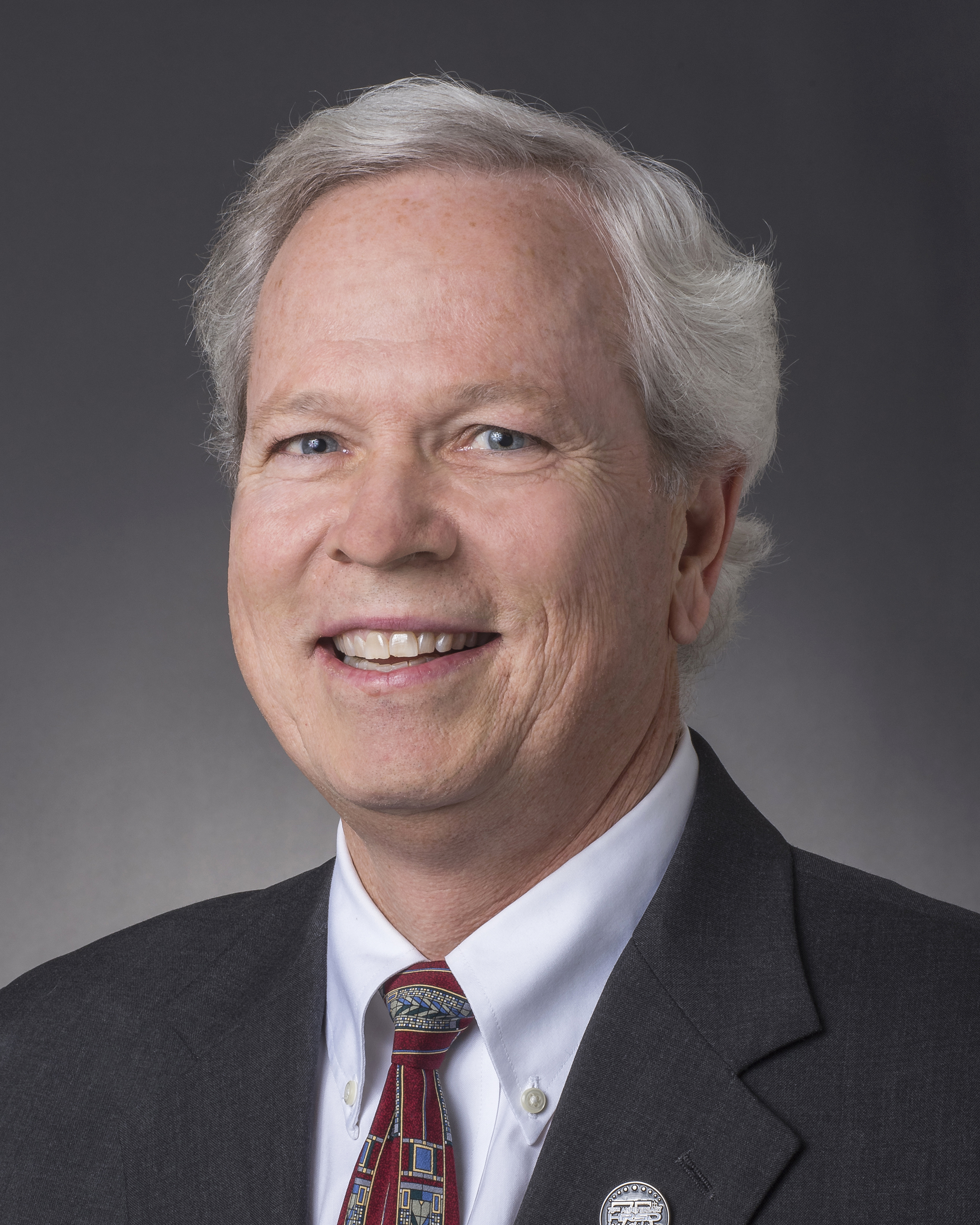 Ted Henifin joined HRSD in 2006, as General Manager. HRSD has a long history of innovation in the wastewater sector and under his leadership HRSD has broadened their focus to add sustainable water management to HRSD’s innovation portfolio with their SWIFT initiative. He previously served as Director of Public Works for the City of Hampton. Mr. Henifin holds a Bachelor’s of Science in Civil Engineering from the University of Virginia. His career has spanned more than 35 years with a focus on public works and utilities in federal, regional and local government in Hampton Roads. He is a registered professional engineer and has been active with professional associations throughout his career. He currently serves on the board of directors for the National Association of Clean Water Agencies (“NACWA”), the Virginia Association of Municipal Wastewater Agencies (“VAMWA”) and Virginia Forever; is the vice chair of the US Water Alliance’s One Water Council, and serves on the US EPA’s Environmental Financial Advisory Board. Mr. Henifin is active in various civic and community organizations in the Hampton Roads community currently serving as the vice chair of the board of directors for Langley Federal Credit Union and is a member of the board of directors for WHRO Public Media.
Ted Henifin joined HRSD in 2006, as General Manager. HRSD has a long history of innovation in the wastewater sector and under his leadership HRSD has broadened their focus to add sustainable water management to HRSD’s innovation portfolio with their SWIFT initiative. He previously served as Director of Public Works for the City of Hampton. Mr. Henifin holds a Bachelor’s of Science in Civil Engineering from the University of Virginia. His career has spanned more than 35 years with a focus on public works and utilities in federal, regional and local government in Hampton Roads. He is a registered professional engineer and has been active with professional associations throughout his career. He currently serves on the board of directors for the National Association of Clean Water Agencies (“NACWA”), the Virginia Association of Municipal Wastewater Agencies (“VAMWA”) and Virginia Forever; is the vice chair of the US Water Alliance’s One Water Council, and serves on the US EPA’s Environmental Financial Advisory Board. Mr. Henifin is active in various civic and community organizations in the Hampton Roads community currently serving as the vice chair of the board of directors for Langley Federal Credit Union and is a member of the board of directors for WHRO Public Media.
Wesley Hipke
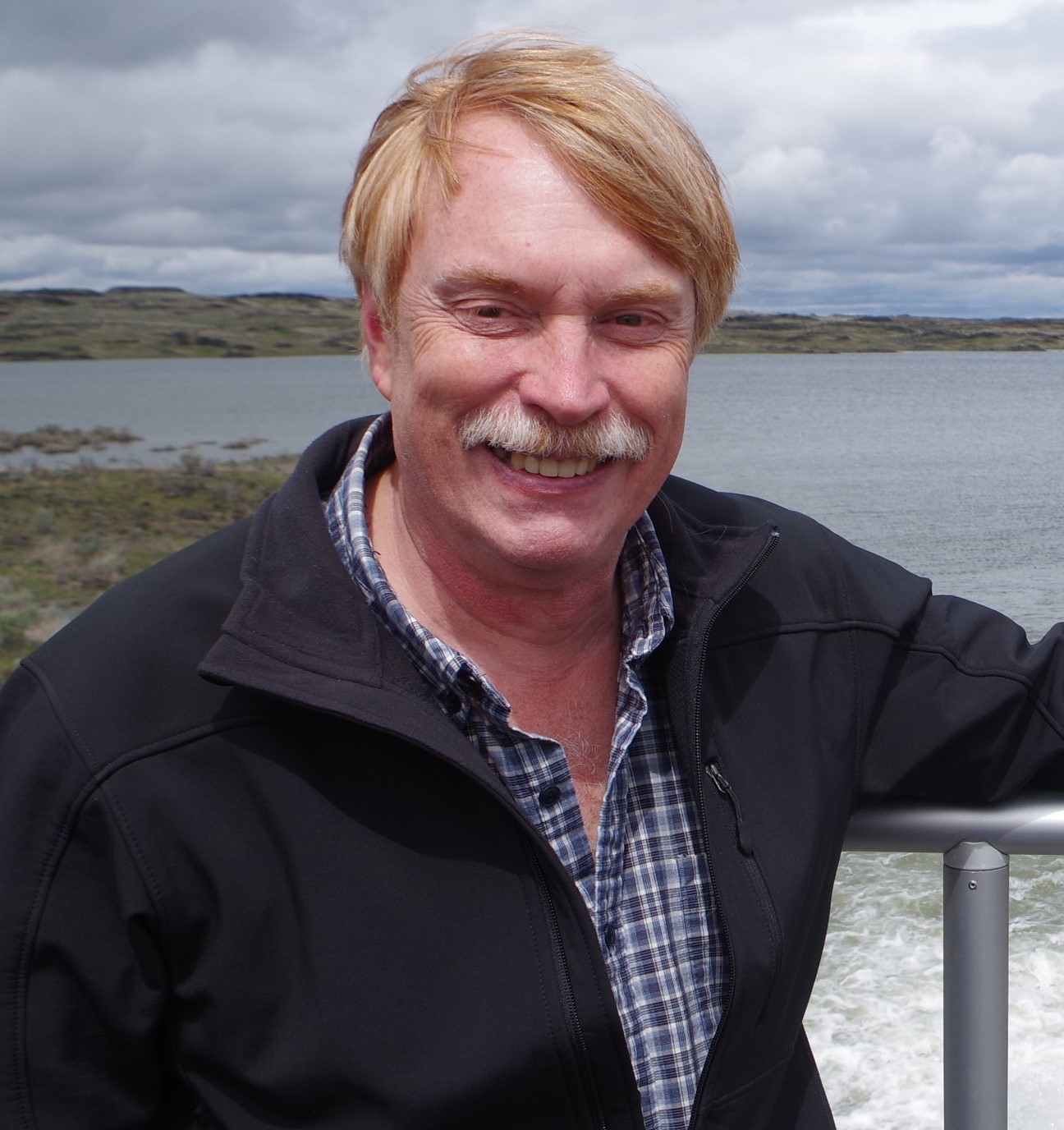 Wesley Hipke is the IWRB Recharge Program Manager for the State of Idaho. Since starting with the Idaho Department of Water Resources in 2015 the State run managed recharge program in the Eastern Snake River Plain Aquifer has grown from an average of 66,000 acre-feet to an average of 405,000 acre-feet over the last three years. Over the last 5 years the program has invested over $30 million dollars in into infrastructure, surface water and groundwater monitoring, water conveyance fees, and investigations/studies. Prior to moving to Idaho in 2012 Wesley worked for the Arizona Department of Water resources for 19 years. During his tenure in Arizona Wesley was heavily involved in Arizona’s recharge program, assured water supply program, and managed their groundwater modeling section.
Wesley Hipke is the IWRB Recharge Program Manager for the State of Idaho. Since starting with the Idaho Department of Water Resources in 2015 the State run managed recharge program in the Eastern Snake River Plain Aquifer has grown from an average of 66,000 acre-feet to an average of 405,000 acre-feet over the last three years. Over the last 5 years the program has invested over $30 million dollars in into infrastructure, surface water and groundwater monitoring, water conveyance fees, and investigations/studies. Prior to moving to Idaho in 2012 Wesley worked for the Arizona Department of Water resources for 19 years. During his tenure in Arizona Wesley was heavily involved in Arizona’s recharge program, assured water supply program, and managed their groundwater modeling section.
Over Wesley’s 25 years of experience he has worked with a wide range of stakeholders using technology and data to assist water managers in solving water supply challenges. He received a B.S. in Geology from the University of Nebraska, a M.S. in Geology from Wichita State University and is a Professional Registered Geologist in the state of Idaho.
Adam Hutchinson
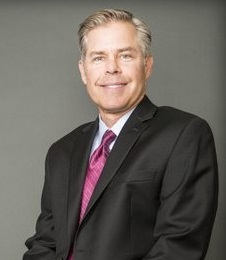 Adam Hutchinson is the Recharge Planning Manager for the Orange County Water District in southern California. He has over 30 years water resources experience. In his 20 years at the District, he has worked as Director of Recharge Operations and as Senior Hydrogeologist. He has an undergraduate degree in Geology, a master’s degree in Hydrology from the University of Arizona. He is a Professional Geologist (PG) and Certified Hydrogeologist (CHG) in the state of California.
Adam Hutchinson is the Recharge Planning Manager for the Orange County Water District in southern California. He has over 30 years water resources experience. In his 20 years at the District, he has worked as Director of Recharge Operations and as Senior Hydrogeologist. He has an undergraduate degree in Geology, a master’s degree in Hydrology from the University of Arizona. He is a Professional Geologist (PG) and Certified Hydrogeologist (CHG) in the state of California.
Jennifer Johnson

Jennifer Johnson is a hydrologic engineer with the Bureau of Reclamation in the Pacific Northwest Region’s Water Management group. She leads and conducts long term planning and modeling studies throughout the Pacific Northwest and supervises a team of modelers. She has worked on numerous hydrologic studies that involve analyzing the impacts of proposed operational and infrastructure changes to river systems including the Deschutes, Yakima, Boise, Upper Snake, and Umatilla.
Jennifer received a B.S. in Civil Engineering, B.S. in Geophysics, M.Eng. in Civil Engineering from Boise State University, and most recently a Ph.D. in Water Resources from the University of Idaho. She is a licensed professional engineer in Idaho.
Felicia Marcus
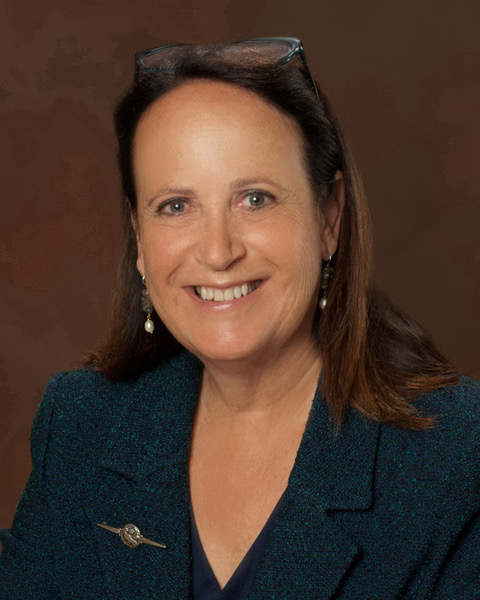 Felicia Marcus has most recently served as a Member and Chair of the State Water Resources Control Board (Board) for the State of California, appointed by Governor Jerry Brown. The Board implements both federal and state laws regarding drinking water and water quality, and it implements the state’s water rights laws. The Board sets statewide water quality, drinking water, and water rights policy, hears appeals of local regional board water quality decisions, decides water rights disputes, and provides financial assistance to communities to upgrade water infrastructure. During Marcus’ tenure the Board tackled a wide range of challenges including dealing with the worst drought in modern history, leading efforts to elevate water conservation, water recycling, stormwater capture to a much higher level, consolidating the drinking water and clean water functions, achieving an historic groundwater management framework for the state, greater focus on Salton Sea restoration and other special places, and balancing agricultural, ecological, and urban interests in the contentious San Francisco Bay-Delta.
Felicia Marcus has most recently served as a Member and Chair of the State Water Resources Control Board (Board) for the State of California, appointed by Governor Jerry Brown. The Board implements both federal and state laws regarding drinking water and water quality, and it implements the state’s water rights laws. The Board sets statewide water quality, drinking water, and water rights policy, hears appeals of local regional board water quality decisions, decides water rights disputes, and provides financial assistance to communities to upgrade water infrastructure. During Marcus’ tenure the Board tackled a wide range of challenges including dealing with the worst drought in modern history, leading efforts to elevate water conservation, water recycling, stormwater capture to a much higher level, consolidating the drinking water and clean water functions, achieving an historic groundwater management framework for the state, greater focus on Salton Sea restoration and other special places, and balancing agricultural, ecological, and urban interests in the contentious San Francisco Bay-Delta.
Before her appointment to the Water Board, Marcus served in positions in government, the non-profit world, and the private sector. In government, Felicia served as the Regional Administrator of the U.S. EPA Region IX in the Clinton Administration where she worked extensively on the range of environmental issues under EPA’s jurisdiction, including Bay-Delta issues. Prior to that, Felicia headed Los Angeles Department of Public Works at a time when the department went from garnering lawsuits to garnering national and international awards for environmental initiatives and performance. In the non-profit world, she was the Western Director for the Natural Resources Defense Council, and was the Executive VP/COO of the Trust for Public Land. She also was a private and non-profit sector attorney in Los Angeles. She is also currently an Obama Administration appointee to the Commission on Environmental Cooperation-Joint Public Advisory Council (US, Mexico, Canada) and was a Schwarzenegger Administration appointee to the Delta Stewardship Council prior to being appointed to the Water Board.
She earned her JD in 1983 from New York University and her AB cum laude from Harvard College in East Asian Studies in 1977. She is admitted to the California bar.
Dave Owen
 Professor Dave Owen teaches courses in environmental, natural resources, water, land use, and administrative law at UC Hastings College of Law. He went to Berkeley Law, where he served as editor-in-chief of Ecology Law Quarterly and was selected for the Order of the Coif. Professor Owen went on to clerk at federal district court and then work for a small law firm in San Francisco, where his practice focused primarily on water law. He worked on Colorado River allocation, Sacramento-San Joaquin Delta litigation, and federal state disputes over the proposed Yucca Mountain nuclear waste repository, among other matters. In 2007, he began teaching at the University of Maine School of Law. He joined the Hastings faculty in 2015.
Professor Dave Owen teaches courses in environmental, natural resources, water, land use, and administrative law at UC Hastings College of Law. He went to Berkeley Law, where he served as editor-in-chief of Ecology Law Quarterly and was selected for the Order of the Coif. Professor Owen went on to clerk at federal district court and then work for a small law firm in San Francisco, where his practice focused primarily on water law. He worked on Colorado River allocation, Sacramento-San Joaquin Delta litigation, and federal state disputes over the proposed Yucca Mountain nuclear waste repository, among other matters. In 2007, he began teaching at the University of Maine School of Law. He joined the Hastings faculty in 2015.
His research focuses primarily on water resource management, and some recent projects have addressed taxation of water consumption, the roles of federal regional offices, stream protection under the Clean Water Act, policies to expedite dam removals and hydropower upgrades, and the intersection of groundwater use regulation and the takings clause. Four of his articles have been recognized by his peers as among the top environmental law articles of their respective years; another article has won the Morrison Prize as the top sustainability law article of its year, and he has presented three articles at the Harvard-Stanford-Yale Junior Faculty Forum. He also contributes frequently to the Environmental Law Prof Blog.
Robert Puente
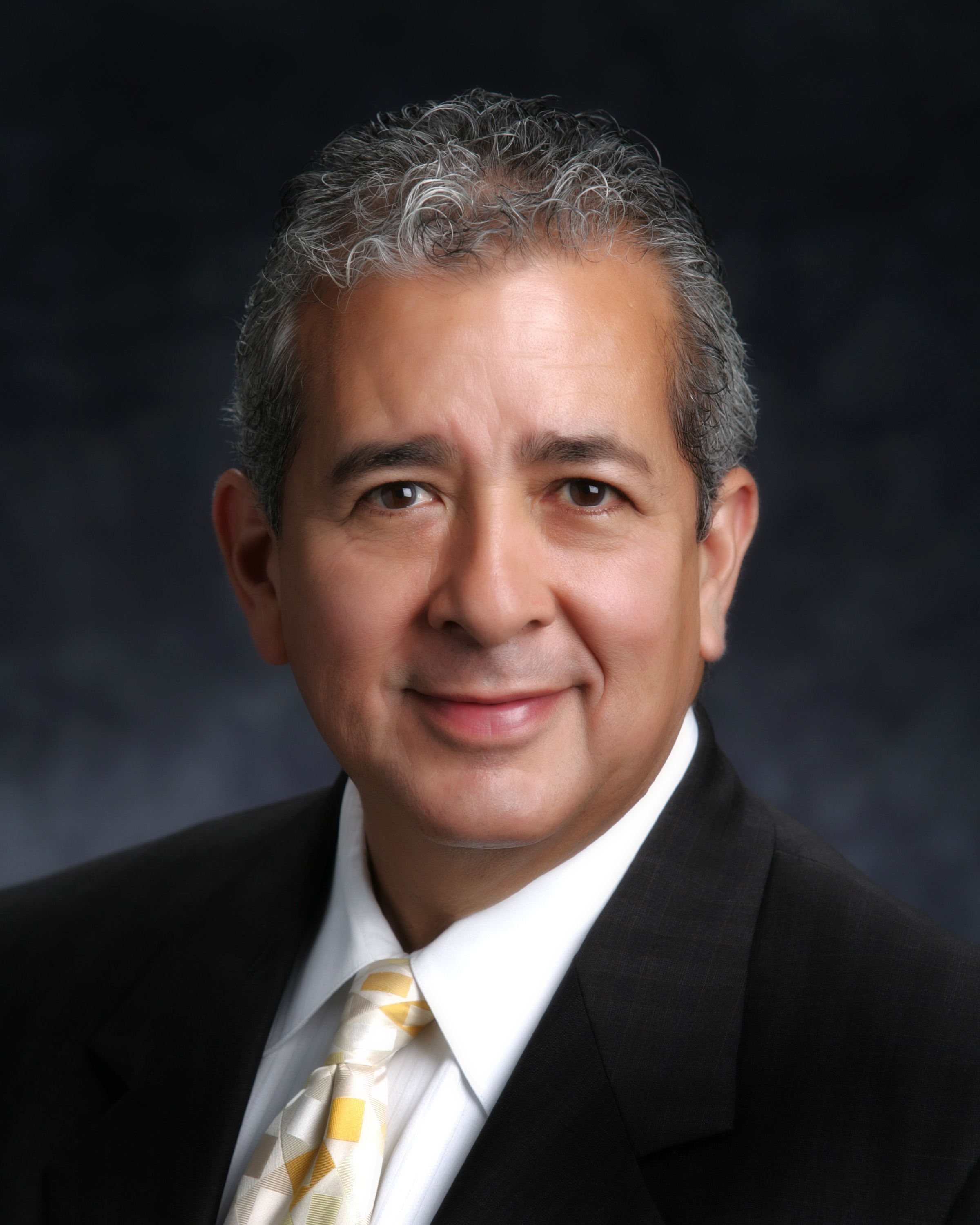 Robert R. Puente was appointed San Antonio Water System’s President and CEO in May 2008. As chief executive of one of the nation’s largest utilities, he provides leadership in delivering water and wastewater services to more than 1.8 million consumers, developing new water resources, continuing infrastructure upgrades throughout the community, and building regional partnerships. Before coming to SAWS as the President/CEO, Puente served in the Texas House of Representatives. First elected in 1991, Puente was appointed to the House Natural Resources Committee, which develops water policy for the state. He became its chairman in 2003.
Robert R. Puente was appointed San Antonio Water System’s President and CEO in May 2008. As chief executive of one of the nation’s largest utilities, he provides leadership in delivering water and wastewater services to more than 1.8 million consumers, developing new water resources, continuing infrastructure upgrades throughout the community, and building regional partnerships. Before coming to SAWS as the President/CEO, Puente served in the Texas House of Representatives. First elected in 1991, Puente was appointed to the House Natural Resources Committee, which develops water policy for the state. He became its chairman in 2003.
As one of the policy pioneers of modern water supply management in Texas, Puente helped shape and steward key landmark regional water issues, including creation of the Edwards Aquifer Authority. Since taking the helm at SAWS, Puente has led the entity through many historic financial and operational successes. Under Puente’s leadership, SAWS has focused on water supply diversification and innovation.
Puente received a bachelor’s degree in political science from St. Mary’s University in 1979. He received his Doctor of Jurisprudence from The University of Texas School of Law in 1982. Prior to joining SAWS, he practiced law as a private attorney and managed his own firm.
Jason Roudebush
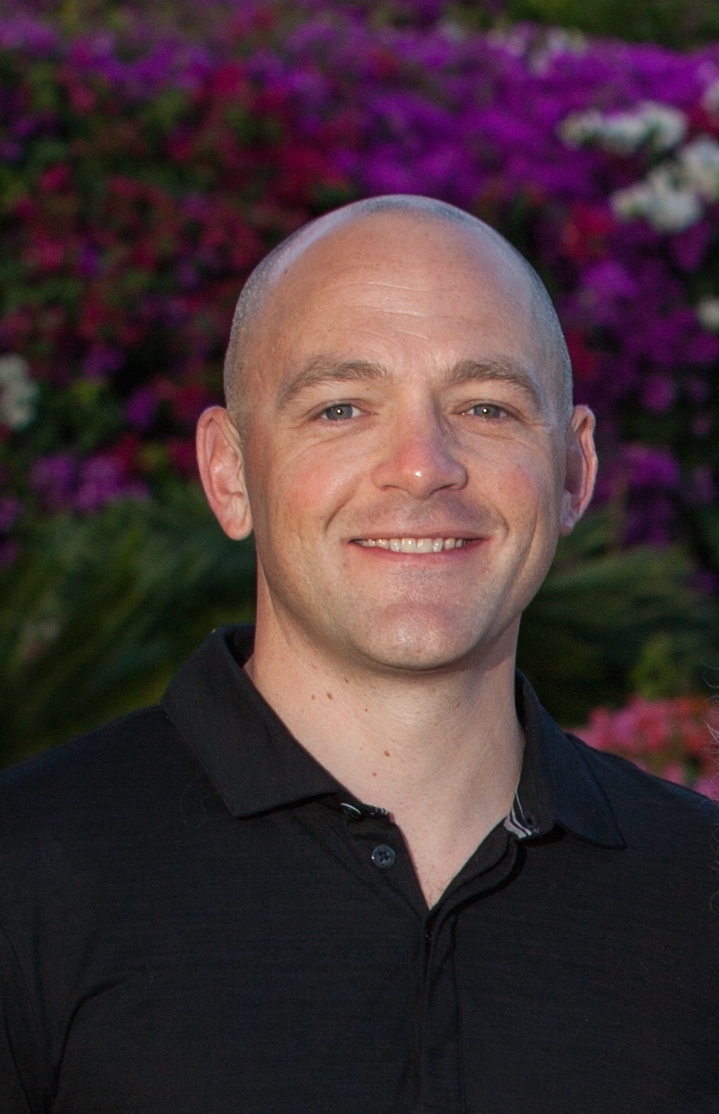 Jason Roudebush is a Water Resource Specialist for Ducks Unlimited covering the seven state Great Plains Region. He earned a MS in Watershed Science from Colorado State University for his work developing a numerical model of the managed groundwater recharge operations at Tamarack Ranch State Wildlife Area in eastern Colorado. With Ducks Unlimited he has continued working in the area of groundwater recharge by partnering with water managers in need of strategically balancing variable water supplies against the increasing water demands from municipal, agricultural, and industrial users. Those increased demands can be met through the construction of conjunctive use sites which retime surface water through the alluvial aquifer to augment streamflow during low flow periods, while innovatively creating and enhancing wetland habitat for waterfowl and other shore birds. This symbiotic relationship between water resource optimization and wildlife habitat management allows rural communities to prosper and municipalities to grow, and helps to offset the energetic costs of migration for North American waterfowl.
Jason Roudebush is a Water Resource Specialist for Ducks Unlimited covering the seven state Great Plains Region. He earned a MS in Watershed Science from Colorado State University for his work developing a numerical model of the managed groundwater recharge operations at Tamarack Ranch State Wildlife Area in eastern Colorado. With Ducks Unlimited he has continued working in the area of groundwater recharge by partnering with water managers in need of strategically balancing variable water supplies against the increasing water demands from municipal, agricultural, and industrial users. Those increased demands can be met through the construction of conjunctive use sites which retime surface water through the alluvial aquifer to augment streamflow during low flow periods, while innovatively creating and enhancing wetland habitat for waterfowl and other shore birds. This symbiotic relationship between water resource optimization and wildlife habitat management allows rural communities to prosper and municipalities to grow, and helps to offset the energetic costs of migration for North American waterfowl.